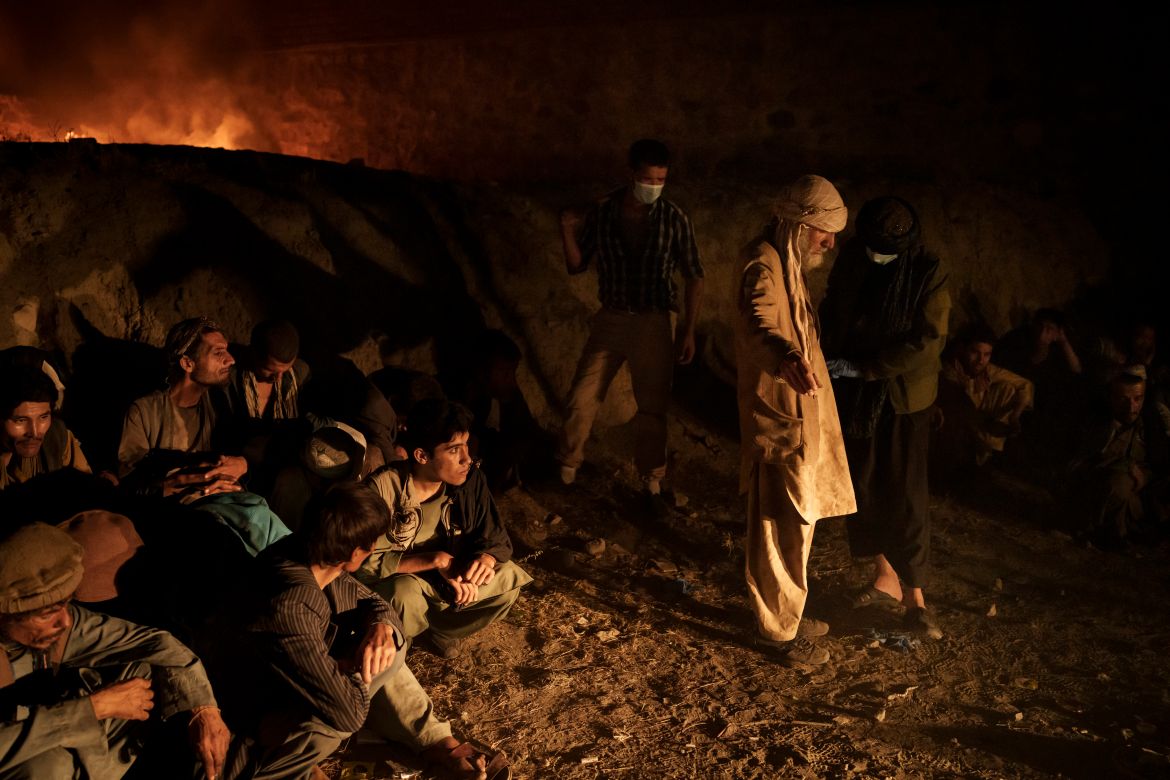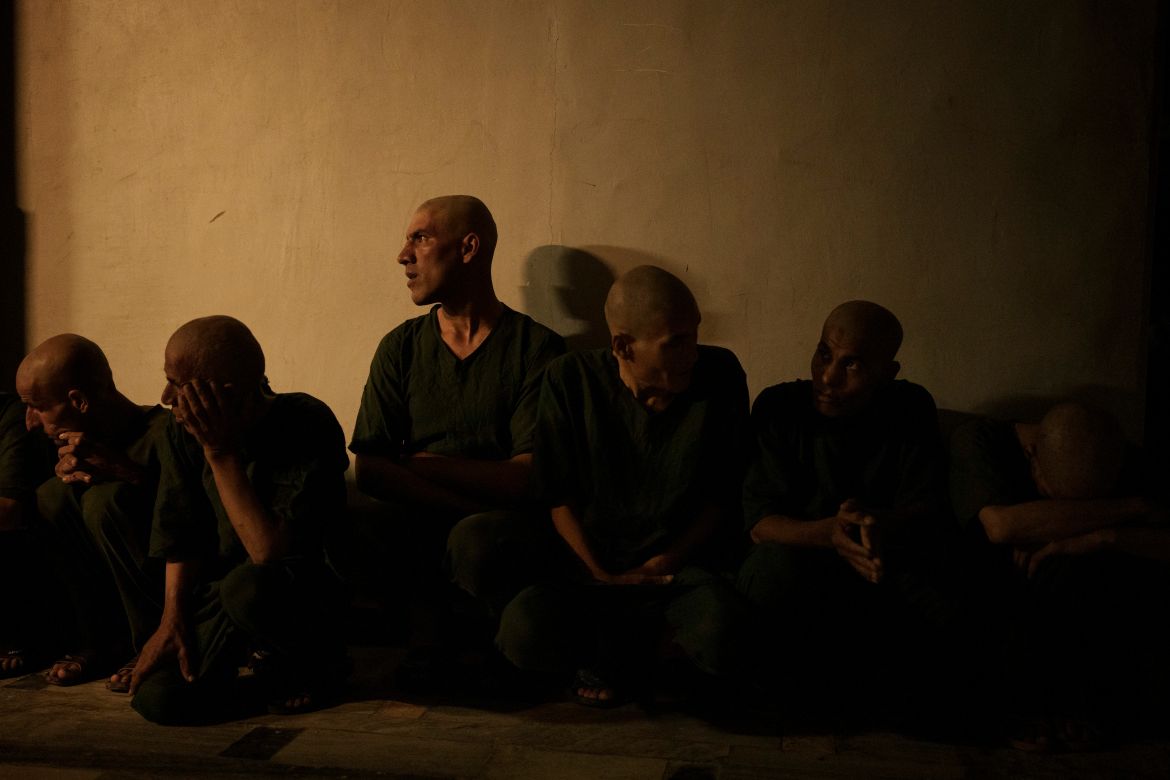In Pictures
Now in power, Taliban sets sights on Afghan drug underworld
Afghanistan’s new rulers set their sights on stamping out widespread drug addiction in their country, even if by force.

Now the uncontested rulers of Afghanistan, the Taliban has set its sights on stamping out the scourge of narcotics addiction, even if by force.
At nightfall, the battle-hardened fighters-turned-policemen scour the capital’s drug-ravaged underworld. Below Kabul’s bustling city bridges, amid piles of garbage and streams of filthy water, hundreds of homeless men addicted to heroin and methamphetamines are rounded up, beaten and forcibly taken to treatment centres.
The Associated Press gained rare access to one such raid last week.
The scene provided a window into the new order under Taliban governance: The men – many with mental illness, according to doctors – sat against stone walls with their hands tied. They were told to sober up or face beatings.
The heavy-handed methods are welcomed by some health workers, who have had no choice but to adapt to Taliban rule. “We are not in a democracy anymore, this is a dictatorship. And the use of force is the only way to treat these people,” said Dr Fazalrabi Mayar, working in a treatment facility. He was referring specifically to Afghans addicted to heroin and meth.
Soon after the Taliban took power on August 15, the Taliban health ministry issued an order to these facilities, underscoring their intention to strictly control the problem of addiction, doctors said.
Bleary-eyed and skeletal, the detained encompass a spectrum of Afghan lives hollowed out by the country’s tumultuous past of war, invasion and hunger. They were poets, soldiers, merchants, farmers.
Afghanistan’s vast poppy fields are the source of most of the world’s heroin, and the country has emerged as a significant meth producer. Both have fuelled massive addiction around the country.
The illicit opium trade is intertwined with Afghanistan’s economy and its turmoil. Poppy growers are part of an important rural constituency for the Taliban, and most rely on the harvest to make ends meet.
Publicly, the Taliban has always denied links to the drug trade. It also implemented the only largely successful ban on opium production, between 2000-2001, before the US invasion. Successive governments have failed to do the same.
On a recent evening, Taliban fighters raided a drug den under a bridge in the Guzargah area of Kabul. With cables for whips and slung rifles, they ordered the group of men out of their fetid quarters. Some came staggering out, others were forced to the ground. The sudden clinking of lighters followed another order to hand over belongings; the men preferred to use up all the drugs they possessed before they were confiscated.
One man struck a match beneath a piece of foil, his sunken cheeks deepening as he sucked in the smoke. He stared blankly into the distance.
Another man was reluctant. “They are vitamins!” he pleaded.
Taliban fighter Qari Fedayee was tying up the hands of another.
“They are our countrymen, they are our family and there are good people inside of them,” he said. “God willing, the people in the hospital will be good with them and cure them.”
An elderly, bespectacled man raised his voice. He is a poet, he announced, and if they let him go he will never use drugs again. He scribbled verses on a piece of paper to prove his point. It did not work.
What drove him to drugs? “Some things are not meant to be told,” he replied.
In the end, they were at least 150 men rounded up. They were taken to the district police station, where all their belongings – drugs, wallets, knives, rings, lighters, a juice box – were burned in a pile since they are forbidden to take them to the treatment centre. As the men crouched nearby, a Taliban officer watched the plumes of smoke, counting prayer beads.
By midnight, they were taken to the Avicenna Medical Hospital for Drug Treatment, on the edges of Kabul. Once a military base, Camp Phoenix, established by the US army in 2003, it was made into a drug treatment centre in 2016. Now it is Kabul’s largest, capable of accommodating 1,000 people.
The men are stripped and bathed. Their heads are shaved.
Here, a 45-day treatment programme begins, said Dr Wahedullah Koshan, the head psychiatrist. They will undergo withdrawal with only some medical care to alleviate discomfort and pain.
Koshan conceded the hospital lacks the alternative opioids, buprenorphine and methadone, typically used to treat heroin addiction. His staff have not been paid since July, but he said the health ministry promised salaries would be forthcoming.
The Taliban has broader aims. “This is just the beginning, later we will go after the farmers, and we will punish them according to Sharia law,” said lead patrol officer Qari Ghafoor.










